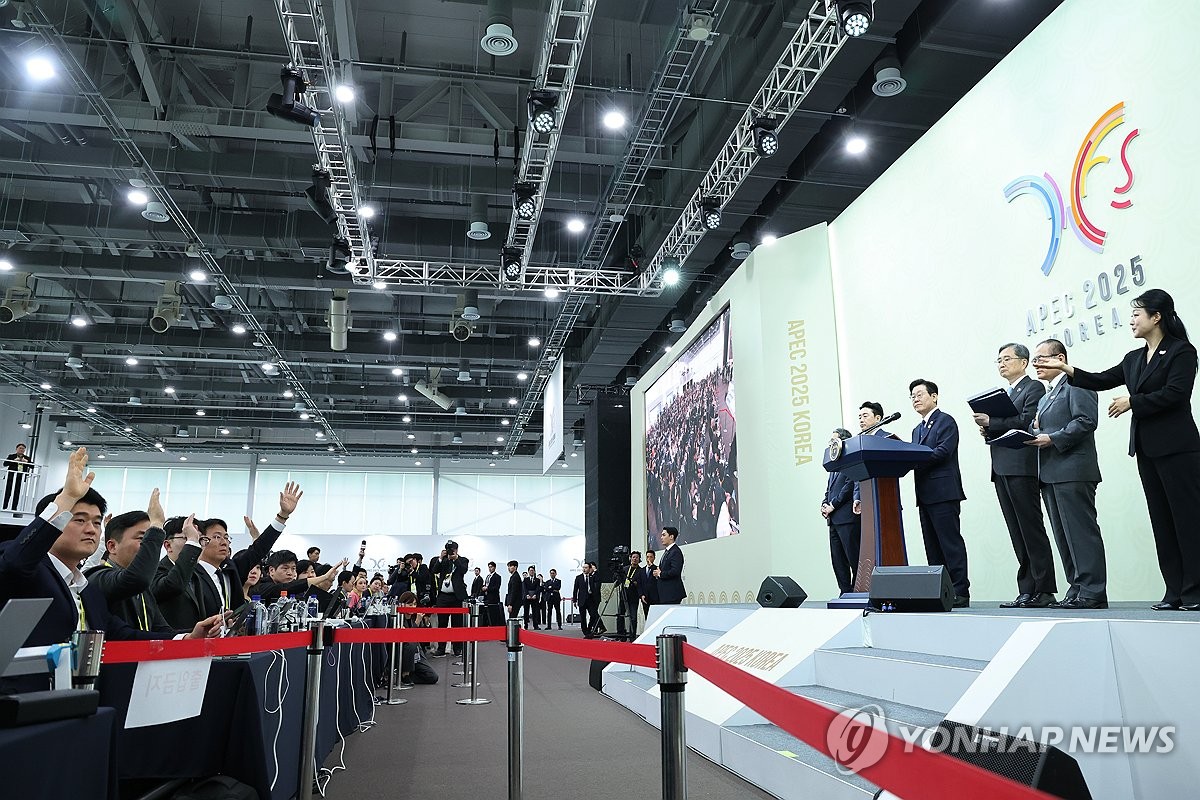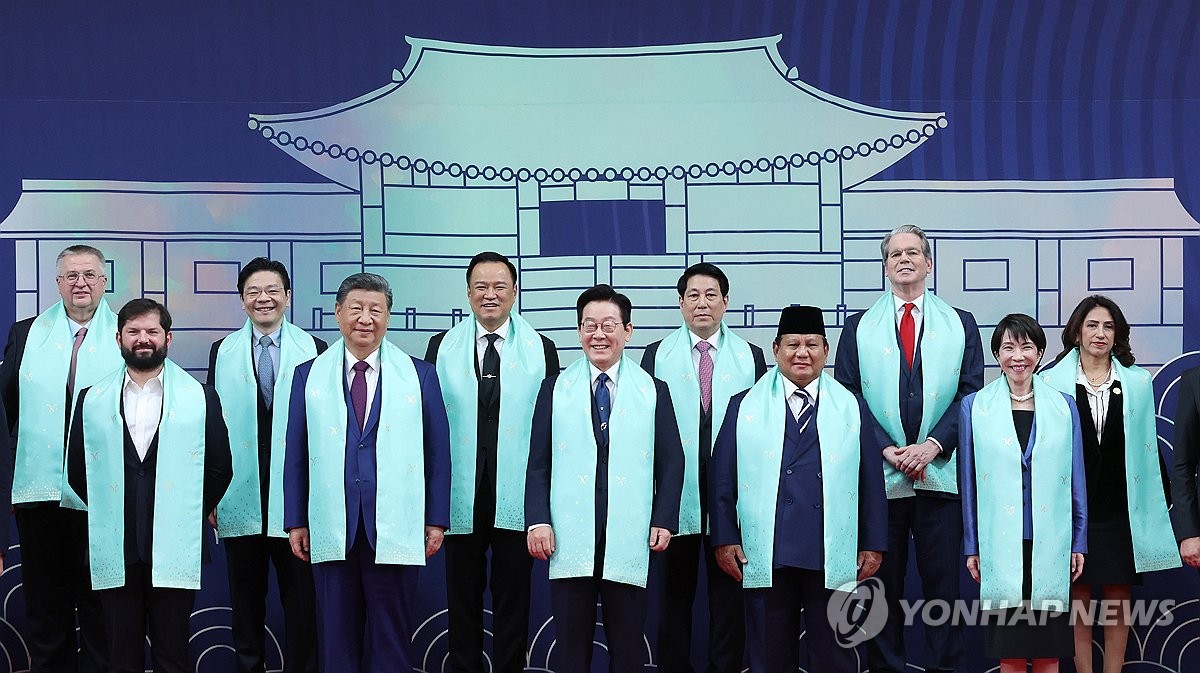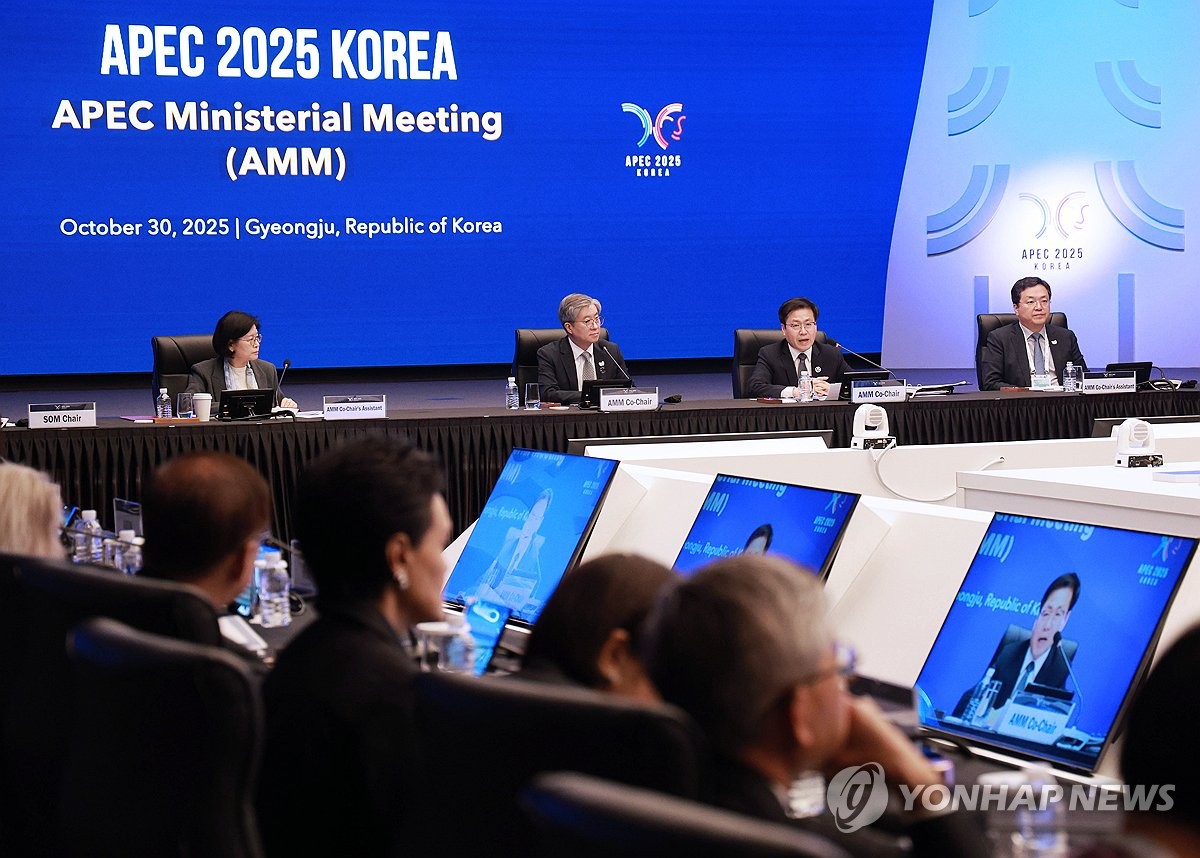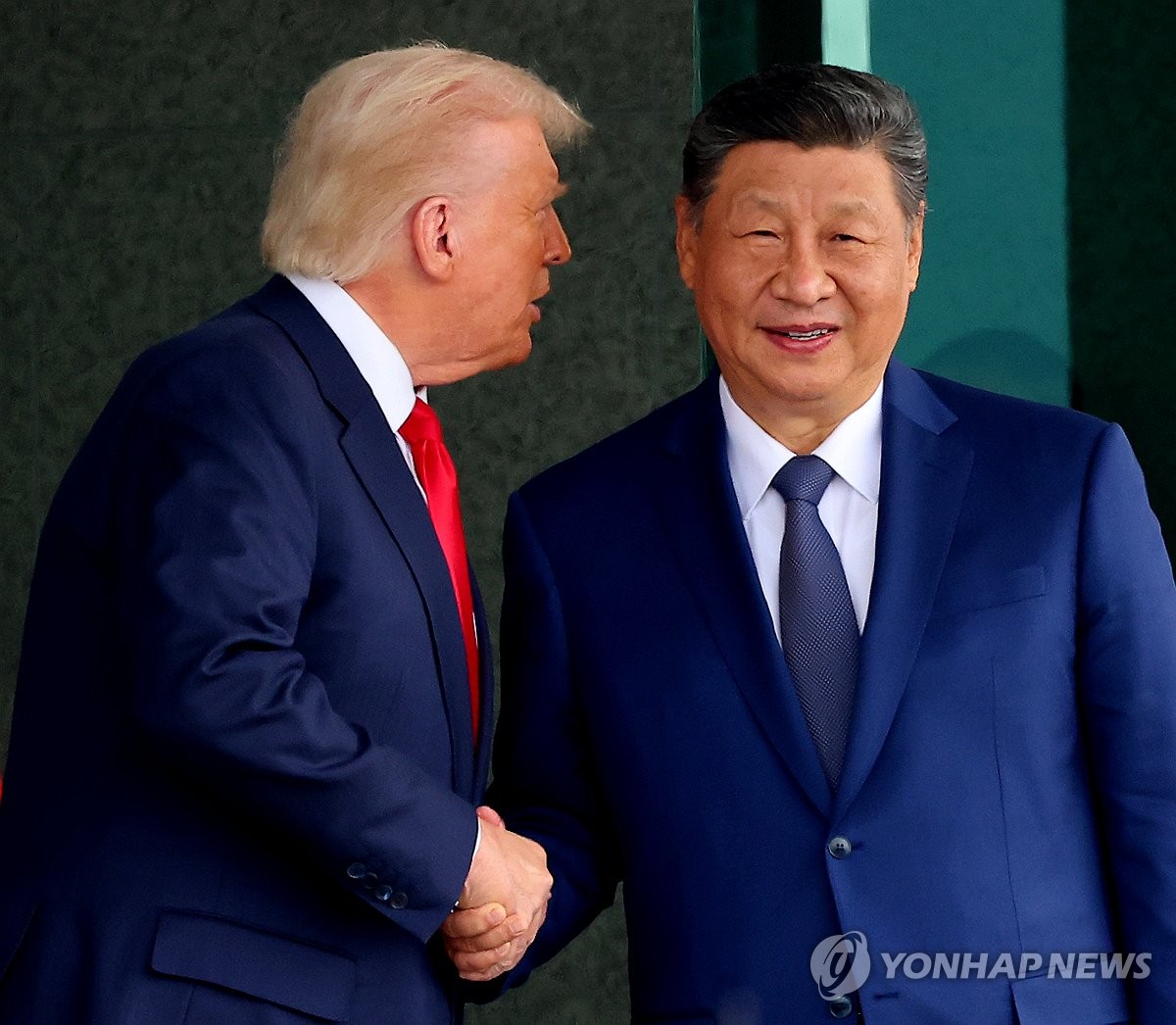Amidst the US-China standoff, the chair country's role is recognized... A successful agreement on the"Gyeongju Declaration" is reached, with both sides agreeing to it.
The first US-China summit of Trump's second term took place in Busan, drawing attention as a global diplomatic event.

(Gyeongju = Yonhap News) Reporter Kim Hyo-jeong = The Asia-Pacific Economic Cooperation (APEC) Summit held in Gyeongju, which concluded on the 1st, drew the world's eyes to Korea.
This is because the Pacific Rim countries, the center of the global economy, have gathered together in a situation where the multilateralism and free trade system that the international community has built for decades is collapsing and an 'every man for himself' order is unfolding.
The focus was on what opinions the 21 APEC members would share on the international trade order during this transitional period and what level of cooperation they could create.
This was also the first APEC summit attended by US President Donald Trump, who has been causing ripples in the international community with his high tariffs and protectionist policies, since taking office for his second term.
In an interview with JTBC on the 30th of last month, Foreign Minister Cho Hyun said,"The free trade order is facing significant challenges and is shaking," and that this meeting will be "a forum for discussion on how to overcome and triumph over this historically significant change in the world."

Korea's shoulders were heavy as it took over as chair again after 20 years since the 2005 Busan APEC Summit.
In particular, reaching an agreement was not easy as the US and China, which are engaged in a 'trade war', are in sharp conflict.
President Trump left for Gyeongju before the APEC summit began, and in Trump's absence, President Xi seemed to be targeting U.S. unilateralism by emphasizing,"Let's protect the multilateral trading system together."
There are also concerns that this could be a repeat of the 2018 APEC meeting during the first Trump administration, when differences in stance between the US and China over WTO reform led to the failure to produce a joint statement, and the chair country, Papua New Guinea, only issued a chairman's statement.
However, after arduous negotiations, the 21 members ultimately succeeded in concluding the"Gyeongju Declaration," a joint statement of APEC leaders, on the 1st. As chair, South Korea's leadership in spearheading this process is drawing attention.
In a press release announcing the Gyeongju Declaration, the Office of the President stated,"We conducted all-night negotiations to reach an agreement on the agenda by the day of the summit, and made efforts to mediate the differences in positions among APEC members, including the U.S., China, Japan, and Russia. As a result, we achieved agreement on all three major achievement documents, including the Gyeongju Declaration."
He reaffirmed his commitment to multilateral cooperation even amid unfavorable negotiating conditions, including challenges to APEC's values and principles, and said,"We overcame the recent hard-line confrontation between the U.S. and China over trade and tariffs, and demonstrated strong leadership to reach an agreement on a document that both sides can agree on."
However, the 'Gyeongju Declaration' could only be adopted after significantly reducing the expressions related to multilateral free trade, such as the World Trade Organization (WTO), that were included in previous APEC summit declarations.
Until the previous APEC summit declaration, there had been expressions of support for the"rules-based multilateral trading system with the World Trade Organization (WTO) at its core," but this year, a compromise had to be reached, with direct references to the WTO omitted from the main text of the summit declaration and instead included in the ministerial joint statement.

This appears to have been influenced by the US's aversion to multilateral free trade, symbolized by the WTO. Casey Mace, a senior US official in charge of APEC, emphasized in a meeting with reporters, including Yonhap News Agency, in Gyeongju that"the US priority this year is to promote fair and reciprocal trade."
In order to achieve unanimity in a member country landscape that has changed significantly from the past, APEC had to accept changes, such as diluting the values of free trade, which are the foundation of APEC.
While South Korea's role as a facilitator of agreement was prominent, the deepening divisions in the international community were once again confirmed.
Meanwhile, the Korean government also sought a breakthrough by bringing the Pacific region's new"joint challenges" of artificial intelligence (AI) development and demographic changes to the forefront of the APEC agenda.
According to the Office of the President, the 'APEC AI Initiative' adopted at this meeting is the first summit-level agreement on AI involving both the United States and China.
Meanwhile, with the APEC summit as an opportunity, the first summit between the US and Chinese leaders since President Trump's second term took place at Gimhae Airport in Busan on the 30th of last month, drawing attention to Korea as a venue for global diplomatic events.
The US and China, escalating into a trade war, reached a dramatic"truce" at a summit and agreed on future reciprocal visits between their leaders. This agreement, which will shape US-China relations for a considerable period of time and ultimately impact international relations as a whole, was forged in Korea.
The first summit between Xi Jinping and new Japanese Prime Minister Sanae Takaichi was also held in Gyeongju on the occasion of their attendance at APEC.


